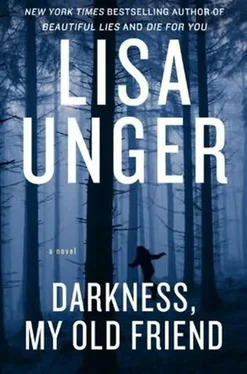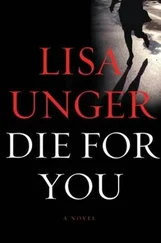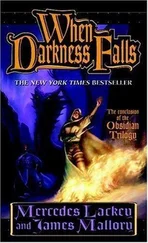***
“Where’s Mom?” It was a hundred years ago that he’d first asked that question, the question he’d been asking in one way or another every day since.
His father, Mack, had stood in the kitchen, scrambling eggs in a scratched-up yellow pan on the stove. His father had seemed to freeze, to hold his breath, when Michael entered the room and pulled up his usual chair at the table. Michael remembered everything about that room that morning. How the sun came in from the window over the sink, and through it he could see the tire swing he hadn’t touched in years. How the chair leg always caught on the vinyl tile that was coming up, how there was a cigarette burn in the red-and-white checked tablecloth. He could smell the eggs, cooked too long. His mother wouldn’t like the coffee his father had made; it smelled weak. They’d probably bicker about it. If you don’t like the coffee I make, make it yourself .
“What do you mean, ‘Where’s Mom?’ ”
There was something strange about his father’s tone, something taut and foreign; his shoulders seemed to quake just slightly. Mack still hadn’t turned to look at him; Michael stared at the back of his father’s head, the dark brown hair run through with gray, the eternal plaid shirt, the chinos and brown leather shoes. What are you wearing, Mack? His mother’s eternal question that wasn’t a question but a taunt.
That morning Michael had a terrible headache, a real killer. He’d struggled for the details of the night before but found he couldn’t remember. He was supposed to spend the night at a friend’s house, but once there he’d wanted to come home. He remembered riding his bike through the quiet streets. He remembered leaving the bike in the drive and coming up the front steps, putting his hand on the knob. But that was the last moment he could recall. As vivid as his memory of that morning was, the night before was still, years later, a total blank.
“Where is she?” he’d asked again.
“She’s gone, son. You know that.”
His father had turned then, and the man looked as though he’d aged ten years since Michael saw him the day before.
“Gone where?”
I hate you. I hate this place. I hate this life . The words came back, the echo of her desperate shrieking still bouncing off the ceiling and the walls. That’s when it started opening in him, that abyss of despair.
A hard knock on the window of his truck snapped him back to the present. Mrs. Miller. He rolled down the window, though he didn’t want to.
“Michael,” she said. “What are you doing just sitting there like that?”
“Sorry,” he said. “Just zoning out. Long day.”
“You didn’t tell me you were selling.” Her breath smelled of something stale. It was hard to see in the darkness, but he knew her hair to be dyed a preposterous shade of orange, her face a cracked mask of deep lines.
He’d always hated Mrs. Miller. It seemed as if she’d been the mean old lady next store forever, the keeper of lost balls, the frowner, the finger wagger, the parent caller. Would she ever die? Or would she just rattle about that house for millennia, torturing generations of neighborhood children?
“Yes, Mrs. Miller,” he said. He always tried to be polite. “It’s on the market.”
She issued an unpleasant snort. “Well, if you don’t clean it up, it’s only going to attract riffraff.”
Riffraff? Did people still use words like that? What did it even mean? He imagined some barefoot, downtrodden family dressed in rags, their belongings in garbage bags.
“I’m working on it, Mrs. Miller.”
Mrs. Miller looked back at the house, and he followed her eyes.
“He used to keep it up, before he got sick,” she said. There was an accusation inherent in the statement. But Michael knew enough about people like Claudia Miller to ignore the subtext. She didn’t know anything about him. And she certainly didn’t know anything about his father. No one did.
He opened the car door, and she backed away from him, her eyes widening a bit-at his height, he supposed. He towered over her. She wrapped herself up in her arms. He saw how the threadbare fabric of her housecoat clung to her small, shriveled body; he turned his eyes from her. There was something, not just about her physical appearance, that repulsed him. He started to feel that familiar rise of discomfort that he often had in personal encounters, a desire to flee into the house and close the door. But for a moment she didn’t move, and neither did he.
“Mrs. Miller, do you remember my mother?” He had to force the words out.
She looked up at him, startled. A brown paper bag danced noisily down the street, lofting and landing, lifting again in the wind that was picking up. Except for that, the neighborhood was quiet. It always was. No music blaring or dogs barking. People came home and went to work, might be seen tending to their properties on the weekends. But the things he remembered as a kid-the block parties, the gangs of boys and girls riding around on their bikes, playing in one another’s yards-had vanished. Each house was a bubble; people kept to themselves these days.
“Of course I remember her.” What did he hear in her voice? Disdain? Judgment? The woman who ran off on her family, the slut? Of course I remember her .
“Do you remember anything about the night she disappeared?”
Claudia looked down at her feet, continued backing away. “It was a long time ago.”
But Claudia remembered. Because everyone remembered Marla Holt. Every little boy thinks his mother is beautiful. But Marla Holt had been truly, luminously lovely. With chestnut hair that flowed like a river around her shoulders, with those dark eyes, with her hourglass shape, she filled the room when she entered. Men stared, smiled; women looked down at their nails. She wasn’t reed thin; she wasn’t glamorous. Her face wasn’t flawless. Her beauty was something that welled up from inside her, a kind of radiant heat. Even in the snapshots Michael had of her, he could see it. The camera worshipped the contrast on her face, the black eyebrows and red lips against the pale white of her skin. She complained endlessly about the size of her bottom, the constant maintenance she felt her appearance required-plucking, waxing, moisturizing, and exercising. He’d follow her on his bicycle while she ran around the neighborhood.
“I was designed for luxuriating, not for sweating,” she’d pant.
“Come on, Mom. One more mile. You can do it.”
As a boy he’d loved his father, of course. But it was his mother who put the stars in the sky.
“You told the police that you saw her leave,” he pressed. “That she got into a black sedan parked in front of the house, that someone was waiting for her and they drove off together. You said she was carrying a suitcase.”
She stopped moving, gave a single nod. “If that’s what I told the police, then that’s what I saw.” He noticed a tremor in her right hand.
“Do you remember anything else?”
“They were always fighting,” she said. “There was always yelling coming from that house. It used to drive me crazy.”
It was true. He used to hide under his covers and wait for his mother to come weeping up the stairs and close the door to her bedroom. That was the closing bell; the fight was over, and she was the loser again. His father never came after her. Michael never heard the soft tones of their making up. If they ever did make amends, it was in private.
“Did you see who was driving the car?”
“Such a long time ago, Michael,” she said. She shook her head sadly. “I’m an old woman. How can I remember?”
But she did remember, he could tell. She no longer wanted to look at him, was moving toward the safety of her house. Finally she turned and walked rapidly past the line of hedges that divided their yards. From behind the line: “Just don’t sell this place to any unsavory types. Think of the neighborhood.”
Читать дальше












